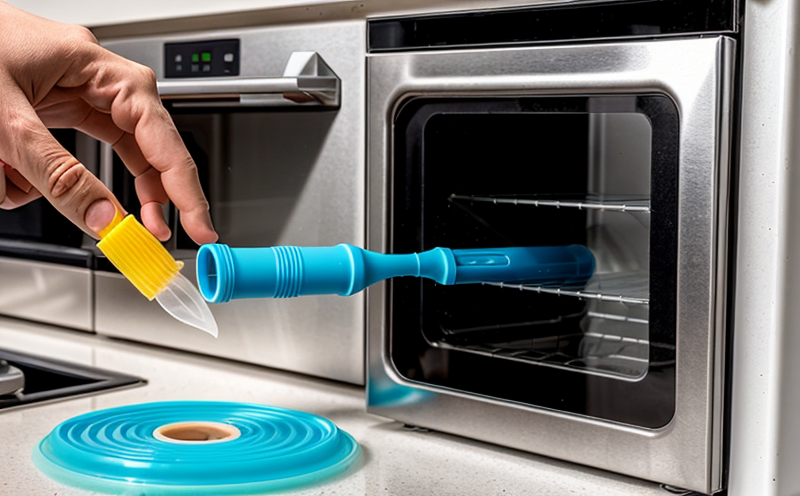ISO 15380 Biodegradable Household Plastics Testing
The ISO 15380 standard is a cornerstone in the evaluation of biodegradable plastics, specifically targeting household applications. This test assesses the extent to which these plastics decompose under aerobic conditions within composting environments. Compliance with this standard ensures that products contribute positively to waste management and environmental sustainability initiatives.
Household plastics encompass a broad range of materials used in everyday consumer goods such as food containers, packaging, and durable household items. The challenge lies in ensuring that these plastics not only perform their intended functions but also degrade safely and effectively once discarded. This is where ISO 15380 plays a pivotal role.
The test procedure involves subjecting the sample to specific environmental conditions designed to mimic composting environments. These include temperature, humidity, and microbial activity levels that are critical for biodegradation. The standard specifies detailed protocols for specimen preparation, incubation periods, and evaluation criteria, ensuring consistency across different laboratories.
Understanding the nuances of this test is crucial for quality managers, compliance officers, R&D engineers, and procurement teams who oversee product development and sustainability initiatives. By adhering to ISO 15380, manufacturers can ensure that their biodegradable plastics meet stringent environmental standards, thereby enhancing brand reputation and market credibility.
The testing process involves several key steps: selecting appropriate specimens, preparing them according to the standard's specifications, incubating under controlled conditions, and finally analyzing the extent of degradation. Compliance with ISO 15380 is not just about meeting legal requirements; it’s a commitment to responsible environmental stewardship.
For those involved in R&D, this test provides invaluable insights into material performance and potential improvements. It helps identify areas for innovation while ensuring that new formulations are environmentally friendly. In procurement, compliance with ISO 15380 ensures that only sustainable materials are sourced, aligning with corporate sustainability goals.
The implications of adhering to ISO 15380 extend beyond mere compliance; they reflect a broader commitment to environmental responsibility and sustainable development. This standard is particularly relevant in today’s market where consumers increasingly demand eco-friendly products. By implementing this test, manufacturers can differentiate their offerings, attracting environmentally conscious customers.
The test results are crucial for decision-making processes within companies. They provide data that informs product design, lifecycle management, and waste management strategies. These insights help ensure that biodegradable plastics not only meet regulatory requirements but also contribute positively to the circular economy.
Scope and Methodology
| Test Parameters | Conditions |
|---|---|
| Temperature | 58°C ± 1°C |
| Humidity | 70% RH ± 2% |
| Microbial Activity | Defined microbial consortium |
| Incubation Time | 180 days |
| Sample Preparation | Cut into 3 cm cubes, weighed to ± 0.5 g |
The scope of ISO 15380 covers the evaluation of biodegradable plastics used in household applications. The methodology involves incubating samples under controlled conditions that simulate composting environments. Key parameters include temperature, humidity, and microbial activity levels. Specimens are prepared according to specific guidelines, then incubated for a defined period before degradation is assessed.
The test ensures that biodegradable plastics decompose effectively within acceptable time frames. This not only aids in waste management but also supports the development of sustainable products. By following these stringent protocols, laboratories can provide reliable and consistent results that are internationally recognized.
Why Choose This Test
- Evaluate biodegradability under realistic conditions
- Ensure compliance with international standards (ISO 15380)
- Support sustainable product development and lifecycle management
- Demonstrate commitment to environmental responsibility
- Enhance market credibility through eco-friendly offerings
- Achieve regulatory compliance for household plastics
- Incorporate data into decision-making processes for R&D teams
- Provide reliable, internationally recognized results for stakeholders
The ISO 15380 biodegradable plastics test is a critical tool for quality managers and R&D engineers. It allows for the evaluation of household plastics under realistic composting conditions, ensuring that products meet stringent environmental standards. Compliance with this standard not only aids in waste management but also supports the development of sustainable products.
By choosing this test, organizations can demonstrate their commitment to environmental responsibility. This is particularly important in today’s market where consumer demand for eco-friendly products is growing. The test results provide valuable data that informs product design and lifecycle management strategies, ensuring that biodegradable plastics not only meet regulatory requirements but also contribute positively to sustainable development.
Environmental and Sustainability Contributions
The ISO 15380 biodegradable household plastics test plays a crucial role in promoting environmental sustainability. By evaluating the biodegradability of household plastics under realistic composting conditions, this standard helps reduce waste accumulation and supports the circular economy.
Biodegradable plastics offer a sustainable alternative to conventional non-biodegradable materials. They decompose into natural elements such as water, carbon dioxide, and biomass, minimizing their environmental footprint. This test ensures that these materials are genuinely biodegradable, thereby enhancing the overall sustainability of household products.
The use of ISO 15380 also supports waste management strategies by providing a clear indication of how quickly plastics can decompose in composting environments. This information is invaluable for companies looking to incorporate sustainable practices into their operations. By choosing biodegradable plastics that meet this standard, manufacturers can contribute positively to waste reduction and environmental conservation.
In addition to its direct environmental benefits, compliance with ISO 15380 also enhances market credibility. Consumers are increasingly aware of the importance of sustainability and are more likely to purchase products from companies that demonstrate a commitment to environmental responsibility. By adhering to this standard, manufacturers can differentiate their offerings and appeal to environmentally conscious consumers.
The test results provide valuable data for R&D teams, informing product design and lifecycle management strategies. This ensures that biodegradable plastics not only meet regulatory requirements but also contribute positively to sustainable development. By following these stringent protocols, laboratories can provide reliable and internationally recognized results that are trusted by stakeholders across the industry.





